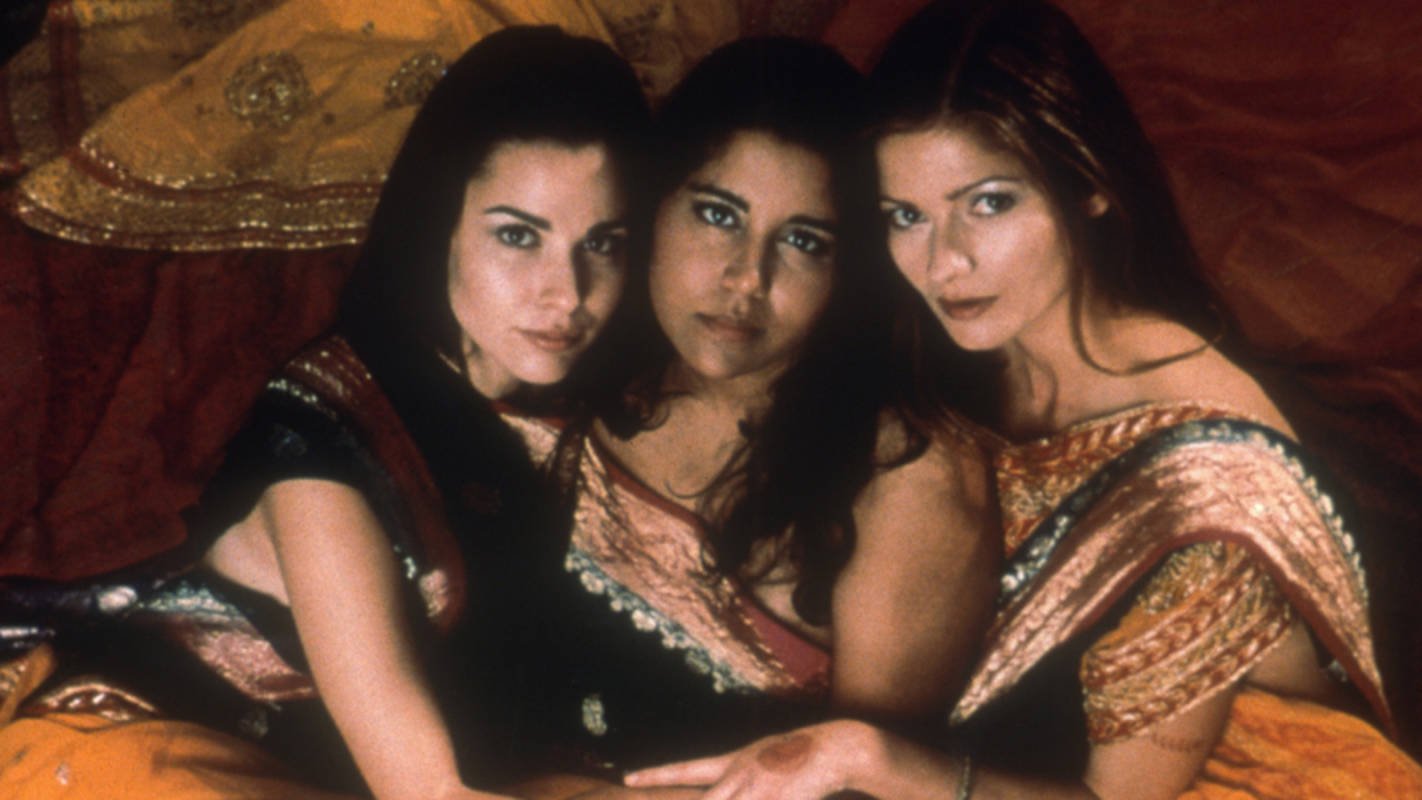Chutney Popcorn takes on tricky topics like assimilation, identity and dyke family, but it is defiantly soft-edged. Twenty-seven-year-old queer director and Vancouver native Nisha Ganatra confesses: “I wanted to make a film that you can take your mother to.”
This debut feature has already won the audience choice award at four film fests, proving that an interest in sunny feel-good films crosses all boundaries.
As well as directing and co-writing, Ganatra took on the lead role when an actress backed out two weeks before shooting began. She plays Reena, a South Asian-American dyke, henna tattoo artist and aspiring photographer.
Meenu, the family matriarch, is deftly portrayed by cookbook heroine and actress Madhur Jaffery. Reena’s sister Sarita (Madhur’s real-life daughter Sakina Jaffery) seems to have it all — an affable new husband, plans to start a conventional family, the requisite picket-fenced house and Meenu’s approval.
Things become complicated when Sarita is unable to conceive. Reena wants to help and rashly offers to bear a child. Her commitment-shy girlfriend Lisa (Jill Hennessy) panics and Reena’s mother and sister are forced to reexamine their preconceptions and priorities.
“I didn’t want to make an ‘issue film’ about this person being gay and it’s so hard, or this person being Indian and it’s so hard. The problems here are intimate family ones.”
It was Ganatra’s understanding of relationship and intimacy that attracted Hennessy to the indie film. Best known as Assistant DA Claire Kincaid on TV’s Law And Order, the former Torontonian is now working on films with Richard Gere, Alec Baldwin and Winona Ryder.
“I had never seen a relationship between two people so well written,” says Hennessy. “If you break down the relationships in a lot of scripts you get an empty shell, but this script had everything — religion, sexuality, family.
“People ask if I am worried about playing a queer character and I tell them that I was a lot more worried about playing a lawyer on TV.”
Hennessy and Ganatra first met in a bar. “I was at a New York women in film night and Nisha was giving an acceptance speech for her short film Junky Punky Girl. I went up to her afterwards to say, “Girl, you inspire me.’ We had a beer in the screening room and talked all night.”
Ganatra claims she went home from that meeting and called her producer to say: “I just met our Lisa.” She sent the script to Hennessy’s agent in the morning and got a personal call back the very next day.
Hennessy and Ganatra’s chemistry is as good on screen as it is off. Unfortunately, the supporting dyke characters are less authentic and their banter is often stilted. However, the strongest part of Chutney Popcorn is not its portrayal of lesbian life, but its candid look at family.
According to Hennessy, Ganatra’s real-life mother was on set along with the fictional one. “She was thrilled to have finally found a use for the sari she had put aside for Nisha’s wedding.”
In the film, Reena’s mother Meenu has a traditional response for every crisis, from a Ganesha ceremony after the wedding, to a herbal suppository for child bearing. Meenu’s slow adaptation of her mother’s rituals to a decidedly alternative family is touching and hilarious.
Older sister Sarita begins as a “good daughter,” staying close to her mother culturally and personally, but she gradually rebels and discovers unexpected and unconventional power in her infertility.
Reena is at the centre of it all. An opening scene finds her struggling to keep her trailing sari out of her eyes as she rides a motorcycle to her sister’s classical Indian wedding. She is both at home and at odds with the ritual.
“The experience of being too Indian to be really American, and too American to be really Indian, is shared by the children of many different immigrant families,” says Ganatra. “Nowhere feels quite right or at home.
“So far Indian-American audiences have been so excited at seeing themselves on the screen that they have overcome any homophobic reservations, [it’s from] the kind of elation that you get from finally seeing some representation.”
Editor’s note, Aug 15, 2017: The original version of this article, published on May 17, 2000, was titled, “Who’s Sari Now: Life is Rarely Smooth Like Silk,” and featured a different photo and included screening information for the film’s then-launch in Toronto.

 Why you can trust Xtra
Why you can trust Xtra


